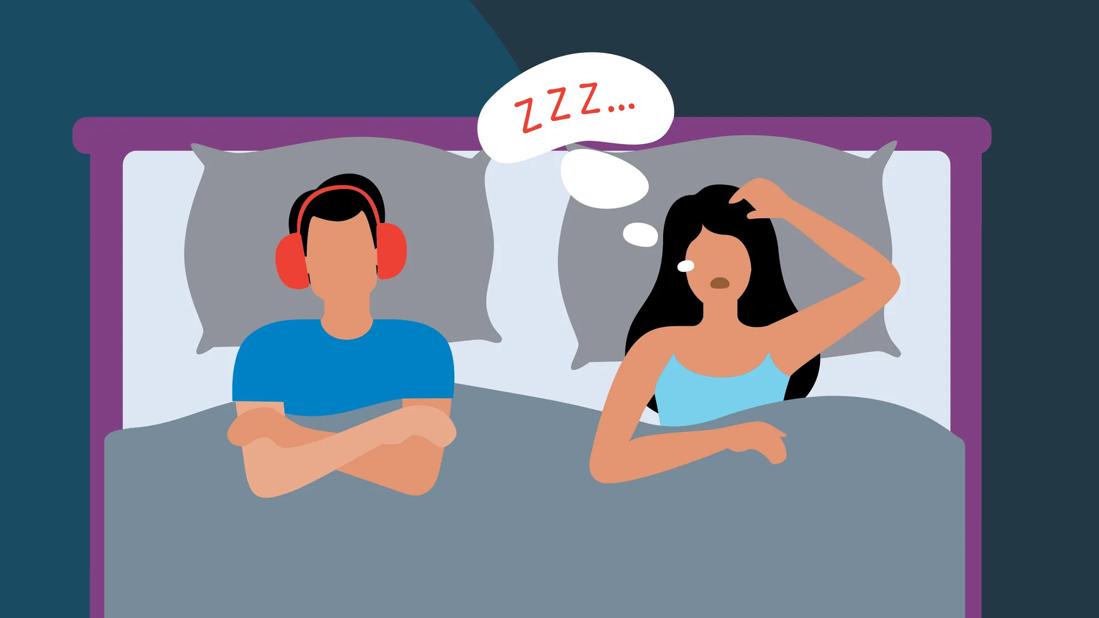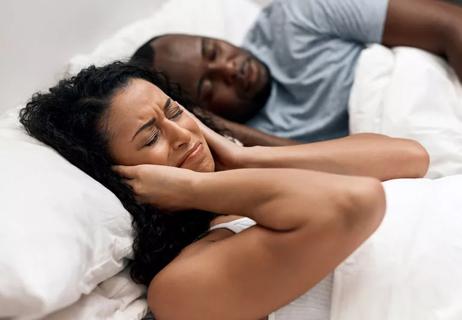Using nasal strips and propping your head up in bed are just two ways that may help you stop snoring

Snoring can be irritating to loved ones trying to catch some ZZZs. Although it’s more common in men who have overweight or obesity, children often get caught up in snoring, too. But it can happen for a variety of reasons and is often linked to other underlying conditions, like:
Advertisement
Cleveland Clinic is a non-profit academic medical center. Advertising on our site helps support our mission. We do not endorse non-Cleveland Clinic products or services. Policy
But what makes snoring increasingly worrisome is that it can also be a sign of obstructive sleep apnea. This serious condition disrupts your ability to breathe for seconds at a time over and over again while you sleep.
“Snoring and apnea often go hand in hand,” says otolaryngologist (ear, nose and throat physician) Tony Reisman, MD.
If you have sleep apnea, you likely still feel tired when you wake up because the disruption to your breathing actually keeps your brain and body awake throughout the night. And if left untreated, sleep apnea can lead to other health issues, including:
Overall, you’ll want to find out how to stop snoring before it causes any lasting damage. Dr. Reisman explains why it’s important to root out the cause of your snoring — and why you don’t want to sleep on getting the help you need.
Yes, snoring can be treated. But the effectiveness of treatments depends on the direct cause of your snoring. For some, it may happen because of the way you’re anatomically built. For others, it could be caused by how you’re positioned when you sleep or something more serious like sleep apnea.
Advertisement
To get to the bottom of your nighttime noisemaking, talk to a healthcare provider, like an otolaryngologist (ENT) or a primary care provider. They can look for underlying causes like chronic congestion or nasal obstruction.
Your healthcare provider may also recommend a sleep study to get the full picture on your snoring habits. During a sleep study, you can spend the night in a sleep lab so providers can monitor the number of times you wake up during sleep. Or you can do a sleep study at home with special equipment that monitors your sleep activity from the comfort of your own bed.
“It’s important to get a comprehensive workup to find out what’s causing your snoring,” Dr. Reisman says. “If we find out you have apnea, we can make sure you get the treatment you need to take care of your long-term health.”
Once you know the cause of your snoring, you’ll find several at-home lifestyle changes and medical treatments that can get you to stop snoring immediately and over time. These treatments include:
Snoring, although common, can be a sign of other medical issues, especially if you’re feeling tired throughout the day or find yourself lacking energy. If you’re snoring and at-home remedies aren’t helping, it may be time to get checked out.
Advertisement
Learn more about our editorial process.
Advertisement

Six possible reasons (and solutions) for that nighttime noise

Heroic snoring can be associated with obstructive sleep apnea

If you’re putting off going to bed to have some time for yourself, you’re not doing your well-being any favors

Pain, light exposure and anxiety are just a few factors that could be waking you up in the middle of the night
Try setting a regular sleep schedule, creating a comfortable sleep environment and reducing stress

Sleep apnea is associated with sudden cardiac death and other complications that increase your risk of mortality

If allergies have you coughing and sniffling all night, try showering before bed, keeping the windows closed and propping your head up

If you’re feeling short of breath, sleep can be tough — propping yourself up or sleeping on your side may help

If you fear the unknown or find yourself needing reassurance often, you may identify with this attachment style

If you’re looking to boost your gut health, it’s better to get fiber from whole foods